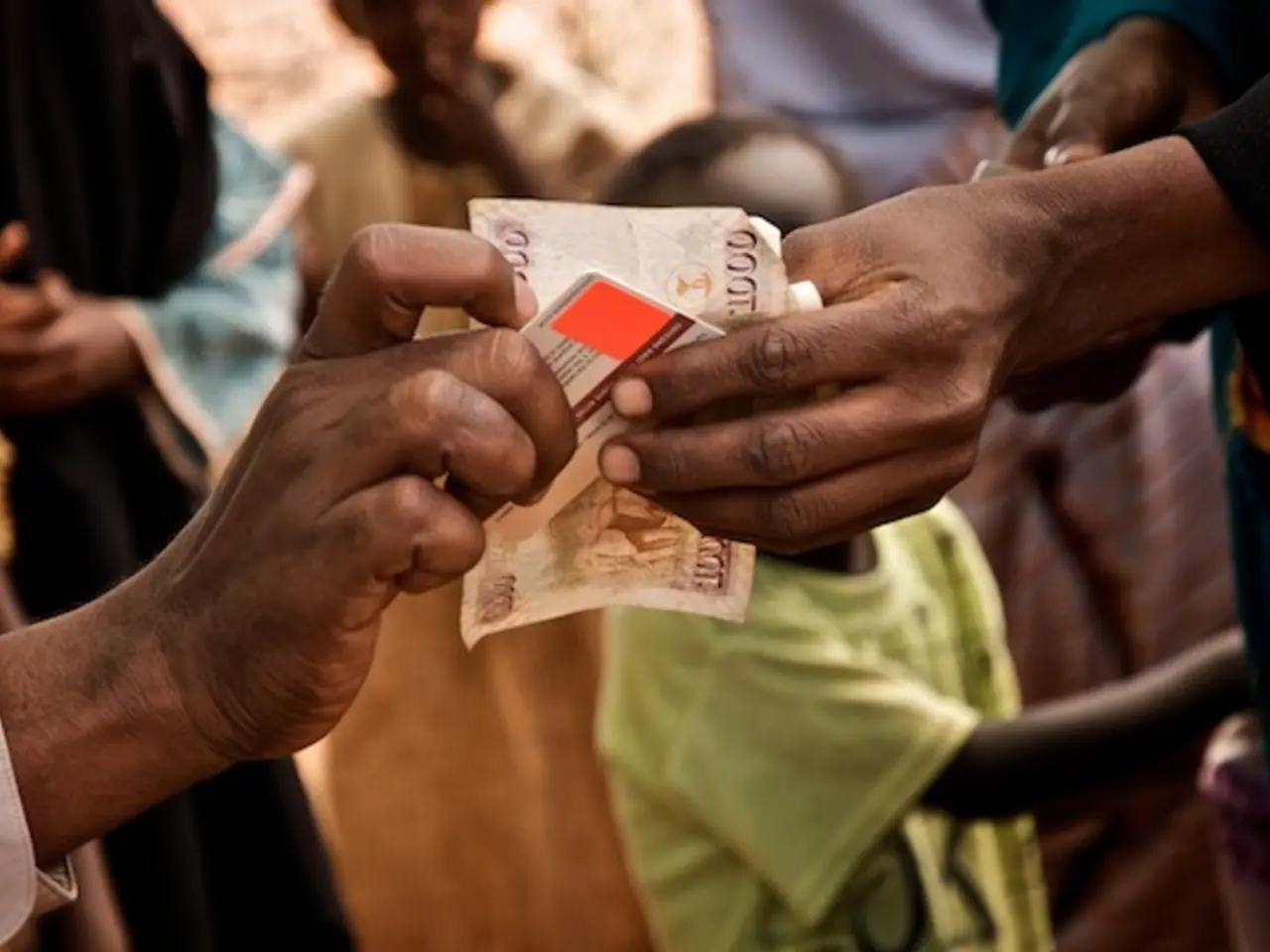Has the time arrived for banks to adopt blockchain technology?
In a significant stride towards modernizing the banking sector, global financial institutions are integrating blockchain technology into their systems to streamline cross-border payments. One of the pioneers in this shift is Citi, with the launch of its blockchain-powered tokenisation platform, Citi Token Services for Cash.
Citi's new platform offers real-time, always-on cross-border payment services using a private and permissioned blockchain. This innovation promises faster, cheaper, and more transparent international transactions, bypassing traditional intermediaries and enabling near-instant settlement. The platform is designed for commercial use and is already operational.
DBS, another leading bank, has also joined the blockchain revolution, releasing a tokenisation and smart contract-enabled platform for its clients. This platform provides treasury tokens, conditional payments, and programmable rewards, all backed by a permissioned blockchain.
The use of smart contracts in both Citi and DBS platforms could lead to increased efficiency and automation in banking processes. Banks can evolve their cross-border payment strategies by incorporating stablecoins and blockchain-based networks, facilitating quick transfers across borders and automatic conversion back to local currencies.
One key way banks are adopting this approach is by incorporating stablecoins in payments. This allows customers and businesses to pay and receive funds in digital currencies pegged to fiat money, combining the speed of blockchain with the liquidity of traditional systems.
Another strategy is adopting hybrid payment models, where funds move from fiat to blockchain (stablecoin) and back to fiat, enabling reduced fees and settlement times while maintaining regulatory compliance.
Blockchain's permanent records also improve auditability and regulatory compliance, crucial for cross-border transactions typically fraught with complexity and fraud risk. Integrating blockchain-enabled real-time or near-instant payment rails complements stablecoin usage and enhances interoperability and accessibility.
Banks must work within evolving regulations and incorporate compliance technologies to mitigate risks associated with blockchain-enabled cross-border payments. Aligning with regulatory frameworks is essential for the widespread adoption of blockchain in the banking sector.
Expanding financial inclusion is another benefit of blockchain technology. It allows participation without traditional banking access, particularly useful in underserved or politically restricted regions, further broadening banks’ customer base globally.
The integration of blockchain technology with traditional financial systems, as demonstrated by Citi, DBS, and Japanese banks such as MUFG, SMBC, and Mizuho, could potentially push blockchain further into use cases in the financial industry.
Visa's Visa Tokenised Asset Platform (VTAP) is designed to evolve a bank's cross-border payment strategy by leveraging blockchain technology. VTAP allows participating financial institutions to mint, burn, and transfer fiat-backed tokens within a single API connection, potentially leading to increased efficiency and automation in cross-border payment processes.
First Abu Dhabi Bank has partnered with J.P. Morgan to pilot programmable payments using JPM Coin Blockchain Deposit Accounts, and more announcements involving blockchain-powered banking services are likely to come.
Visa made VTAP available in a test environment in early October, and BBVA, a Spanish lender, has adopted the platform to test the issuance, transfer, and redemption of bank tokens. As these developments unfold, it remains to be seen if blockchain will see sufficient pickup to expand the banking sector with new financial solutions in the long term.
In this changing financial landscape, Citi's new blockchain-powered tokenization platform, Citi Token Services for Cash, aims to revolutionize cross-border payments using technology. Concurrently, DBS, another global bank, has introduced a tokenization and smart contract-enabled platform, leveraging blockchain technology for enhanced efficiency and automation in banking processes.




